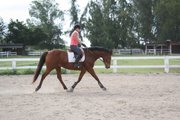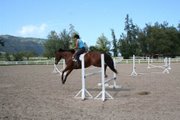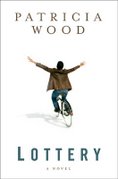If you go outside the lagoon you can keep your fish...only one catch.
Those pesky tiger sharks. They seem to be attracted to the motor of the fishing boat. When a tuna is hooked they see this as a sharky appetizer on a string.
They follow it to the boat, wait for the tuna to tire, and then zoom in and take a bite.
Not unlike critics.

8:30 pm and 75 degrees.
As a writer we have to take criticism.
But of course we don't call it that. We call it writer's groups and work shopping.
That's a joke.
Really.
But think about it. Constructive criticism can be helpful, but there are times you have to go with your gut reaction, keep your vision intact, and ignore sane voices of reason.
Ignore reason? That doesn't make sense!
But sometimes creativity defies reason and sometimes the writer is wrong.
How does one tell the difference?
For me it's beta readers. They help me determine when I am full of artistic bunk and when I have written something that will resonate with readers.
So what do workshops do? Well, for me other writers help me clarify my intent. I can see my own faults more easily in other's work. Which is better?
I think they both are necessary for a writer's growth.
What about you? Can you take criticism?
Can you tell when to ignore it or learn from it?
Or do you see them all as shark bites out of your writerly soul.
"AND IT SHOWS THEM PEARLY WHITE..."


























31 comments:
That's a funny comparison - critiques and shark's teeth, I mean. But I know what you mean, lol.
My beta readers are very important to me, but I don't have many. Only 2 or 3 I trust to really be honest and give me a critique that will help the work grow. They can tear it apart, and I will trust them, because they have no emotional ties to me. I never even met 2 of them. They don't have any reason to pander to my ego. They are writers I admire and they know what to look for.
My other critique is my editor, and I trust her judgement as well.
I trust my instincts in writing the book and telling the story, but my beta readers keep my focused, find plot holes, find inconsistencies, and help make my writing shark proof.
LOL
This is very timely for me, since I just attended my first workshop this weekend and had my 20 minute writing exercise critiqued by my group. They were right. I will be using their comments to improve my work.
Recently I asked someone from my writer's group to read a short story...and I didn't agree with his comments at all. I thought he was totally out of touch and that while his suggestions would improve the grammar, he had no idea how people sound when they talk. I asked my husband if I was just being to precious about my workp; his response was that my critic was out to lunch.
Yesterday I got my middle grade novel back from my friend, who is a school teacher. She had some great corrections for me- all things that I hadn't seen. She didn't spare anything, she asked questions, and she made note of what was good.
I took a chance asking a friend to read it but I trust her. I felt so relieved that she went through it so thoroughly and found mistakes.
Most of all I'm relieved that I set myself up for criticism...and it didn't kill me. I didn't cry like a baby over my wounded ego. I feel pretty good about this and wonder how I'll handle my first "This sucks" comment...
Oh the line forms, on the right, deaah! Now that Mackieeeesssss back in towwwnnnn! I tap danced to that at 10. Flap heel, brush heel, flap heel, brush heel, flap heel, brush heel, flap heel, flap ball change.
I have gotten a critique from an agent that will make my MS sellable in the real live book market that exists in 2007. I love critiquing. I've also gotten agent input I disagree with in that it changes my intent for characters - I welcome input that makes the book structurally sound. I'm new and "Super Agent X" has taught me so much. Sometimes we forget that books ARE products -- yes, yes, they are. Even lit fic needs to sell a few copies, right? So a proper critique that can help you prep your art for the market is to me, invaluable.
Love Bobby Darrin! Thanks!
"Scarlet billows start to spread"
Different critiques apply to different levels; readers' critiques, writers' critiques can be invaluable.
There's a point in the progress of a WIP when you need the industry eye - which is why a good agent is gold.
I love that song...
One thing is certain, if a writer can't deal with sharks she's not ready to go fishing. Some people mistake dolphins for sharks, you know. It's important to know the difference. Sharks will eat you alive while dolphins have been known to save people from drowning.
;)
Hooray! A post on a topic that has been crowding my mind lately.
My diligent husband is my reader during the process. I know there are mixed feelings about allowing someone to read while in utero, but his insight and criticisms make the process, well, I guess easier.
And, for the record, I'd love to be a beta reader for someone. I can think of nothing better for honing my own craft than seeing someone else's WIP. I think it would be a great challenge. Plus, I simply love to read.
Having said that, where does one find beta readers? What an incredibly difficult task. I have girlfriends who will read, but they would have flowery things to say about a recipe for chicken chili that I scribbled on the back of a grocery receipt, so amazed they are by my ability to write a whole book. I want (nay, need) people who don't love me that are willing to read.
Any great ideas?
p.s. Funny --- a boy who was enamored of me in college made me a mix tape with Mac the Knife on it --- and I went to college in the late 80's, early 90's. What do you think that meant?
I choose my critiquers carefully, but I adore good criticism. What's more fun than someone paying close attention to your work and offering thoughtful feedback?
I KNEW my blogging buddies were kindred souls!
Right on Sam -- a good editor is gold.
Congrats Heidi! knowing how to handle a suggestion is a necessary skill,
Yeah!!!KS knows my fav song and you're right - books are products.
I knew I could depend on you Bernita!
Kimber - brilliant people DO have trouble telling dolphins from sharks - a great comparison.
millhouse my husband has always read my stuff but he is an unusual man in that he loves books and gives wonderfully kind feedback.
I started finding my beta readers as more and more of my friends found out I had several completed novels. I did not give chapters and I did not give out stuff too early - I made at least a couple editing passes. There are always readers (not writers) who want to be involved in the career of an emerging writer. It took me three years to create my stable of beta readers.
I've never used beta readers or taken part in a crit group. Perhaps I would if my focus was on fiction and I felt the work wasn't where I wanted it to be.
Editors have delivered a few critiques over the years though, and for the most part I accepted them with equanimity.
When I either balked or bristled (or both) it was because I was right. Or maybe because the editor hadn't found the right argument yet. ;)
As the husband of a writer-about-to-become-an-author-by-virtue-of-being-published, I have long served as one of her phalanx of beta readers. Unlike her other beta readers, who get to give her their comments then go away to their safe little homes, I live with the knowledge that my comments follow me into the night. Not wishing to literally experience the "sleep of the dead", I, therefore, have often found the necessity of, shall we say, tempering my comments. Walking an invisible tightrope: on one side the specter of not being brutal enough to enable her to improve what most certainly needs improving; and on the other side, well, death in any of its several varieties and intensities.
That is, or was, until she obtained the representation of a spectacular agent who seems to adore her and her work and who actually sold the book to a truly intelligent editor who also seems to adore her and her work. Now my delicate flower has all of this independent, third-party confirmation of her brilliance as a teller of stories, confident in her ability to create alternative universes where only her characters live.
And it has freed me. I know longer need to treacle-coat my comments -- in fact, I now have a greater responsibility be brutally honest, so that nothing un-ready issues forth. A different tightrope, to be sure, but one that allows me to sleep with both eyes closed.
(BTW, the trick to walking a tightrope is to keep the rope tight.)
This is an awesome discussion -- but I really want to know if you think those tourist shark cage diving trips train the sharks to come at the sound of boat engines?? Same thing is happening in my home turf in S. Africa. Sharks are behaving differently since they started the cages. Big whites follow the boats right from the harbor.
Kinda like they used to feed the bears in Yellowstone for the tourists before they realized they were habituating them for trouble, no?
And more on topic -- I'm seriously thinking about seeking out beta readers.
Hmm, Pat, are you a "delicate flower" or a murderess-in-waiting? Or perhaps neither or the above?
Having done five semesters of grad school writing workshops, I've learned to recognize in a short space of time which cohorts have views I should heed and which are, as Heidi put it, out to lunch.
I also like to read professional reviews of novels I've read, and compare my reaction to the novel with that critic's. Sometimes the professionals, too, can be hungry sharks who don't look too closely at the tuna they're stalking.
I value any critique that's well-considered; I'm always grateful for the insights.
Actually shark cage tourist attractions have been taking place off the North shore of Oahu. Chumming coupled with the rumbling engine is a powerful reinforcement. Yes I believe we are changing the environment and changing sharks' behavior at the same time.
Beta readers are like trained sharks - they just give you small non fatal nips that get you moving in the right direction but don't kill you.
You can find them by leaving chum also. The chum of words dropped discretely here and there.
Great post. I had a few bad experiences when I first tried CP's and that's probably why I don't have one. I do have an author friend who will give me feedback on a specific scene when I ask. The only other people who see my work before it hits the shelves are my editor and agent.
Criticism is AS difficult to give as it is to take.
First: choose your reader carefully. Sure, in a workshop where everyone is submitting 20 pages to be read, you won't have much of a choice. But over time, you'll learn who is compatible with you.
Second:
No quicky crash workshops at "writers conferences," where the tension is already high..
Third:
When I read someone's work, there are many things I look for: grammar, punctuation, word variety, sentence construction are basic. But then there's something else. How does the language flow, is the imagery that the writer is trying to convey coming through accurately? If they're using metaphors or similes, do they fit the scene?
Then there's the flow of a piece. Does each scene serve to push the character's development along, and does it help to reveal the story? I look to see if the writer has been able to tie in emotional content with the words on the page.
Any feedback I give has to be aimed at helping the writer make their piece stronger. I'm not there for me, not there to plaster my ego over their page. And I can't ever EVER attack that person, as I have seen done in short, intense workshops that get way too emotional and where everyone could use a Xanax to chill.
Hopefully, what I offer is to help make the writing clearer, the prose snap or sing, and to ask the questions of a given piece that eventually, the writers will start asking themself.
And I've found that those who start out as sharks usually are unclear about their own writing as well.
And btw.... Thomas Farber doesn't let anyone read his work until he sends it off to his agent. And now he has his own press as well!
aaNice topic, Pat.
I believe INPUT and FEEDBACK are much different than CRITICISM. The first two help pinpoint areas of confusion that lack clarity, and can also assist in determining if your story lacks impact, requires tightening, etc. Criticism, on the other hand, is simply that, usually delivered without as much careful thought, and often using the "If it wasn't invented in my back yard and if it's not written how I'd write it, it's not good" point of view.
Cultivating relationships with readers willing to read & re-read your work isn't easy, especially finding a few who are intuitive and have a good eye for detail. (I'm sure I read somewhere that Steven King only has 3 readers he uses. I like that, the idea of 3 or 4 quality readers vs. 10 or 12 who aren't as skilled at it.
I currently have two who amaze me with what they pick up and point out, but I'd LOVE to find two more! :)
Hmm . . . I don't think I can take criticism, but I am good at pretending that I can handle it. And then I make all my changes through a veil of tears . . . my god, man, that's beautiful.
Kick 'em in the head and tell them to shut the hell up.
You're a writer, not a Gallup poll.
This has earned me tons of good feedback in the past.
I can take criticism, but I don't use readers because I'm so afraid of losing my vision -- and my vision changing based on whatever way the wind is blowing based on my beta reader's input.
Personally, I believe a really strong editor is all a writer needs.
By the way -- I just did a search for you on Amazon -- and an audio book version of your masterpiece can be pre-ordered. When is the book gonna be available for pre-order. I'm imagining soon! Who is doing the voice on your audiobook?
I think criticism that is sought is much easier to deal with than criticism that isn't asked for. If I ask for criticism, it means I'm in a frame of mind where I'm willing to work with suggestions. That said, I'm not sure harsh criticism is ever easy to take.
I am curious from those of you who have posted about beta readers...how do you judge their worth?
I don't know who is going to do my audio book - and I don't know when my book will be available for preorder. Trust me I will scream it from the rooftops when I know!
Dr. Hack I like your attitude!
I think not everyone wants or needs beta readers but for me they are invaluable.
I do not use them for copyediting but for the wtf storyline.
oh.
And for all the places I make them cry.
Thats my favorite.
But Pat, sometimes they are NOT sane voices of reason, they are wrong, wrong, wrong! It certainly feels like shark bites if you don't agree, doesn't it?
As always, a good observation. Loved the shark tale.
There is good criticism, and then there are the shark bites. The trick is knowing the difference.
I'm not good at taking criticism. I'm sensitive about my art and my writing, but I know that if someone says something, they have a point. I've never heard "this just sucks" but the faces say it all. Experience, though. I just ask other people. LOL.
I can take criticism. My betas are kind, but they will tell me if my characters don't have enough personality, or if something is not flowing correctly. I appreciate constructive criticism, not the kind marred with ill will.
Another thought occurred to me: those critical of a genre they do not read. The elitist who feels literature should be uplifting, thought provoking and hard work -- not entertainment.
Viva La Trash!
Bring on the pulp!
Give me a Danielle Steele on a ten hour plane trip any day!
I find it hard to quibble with an author who has sold millions.
he had no idea how people sound when they talk.
Your reader might have a valid point. Dialogue in novels isn't like how a person talks in real life. In the novel, dialogue stimulates real talk, it helps to reveal the character and move the scene forward. However, it's not a place to waste words with exchanges that we normally do in real life.
"I always try over the phrases, fooling the reader into believing that this is how people actually talk. In fact, inevitably it's far more coherent than any actual talk ...but when in doubt, I will repeat a phrase to myself seven or eith times, trying to put myself in the place of an actor speaking the part."
Kingsley Amis
As far as finding a good reader, find writers who have worked with a wide range --from previously published authors to absolute beginners. If they're well read, then that's a bonus. (Mine is a writer and was also the associate director of a major university library).
Also, offer to read and comment on pages. As you read more and look for certain things, you'll train your own eye and soon you'll be doing everything in your own work that you ask of others.
Pat,
Like I said, experience is everything. (and Danielle Steele is a very nice person. Just super).
I love literary fiction, I love the classics. But when I'm reading pages--be it SciFi, chick lit, or detective thrillers the rules are the same: does it work? How can I help make this piece stronger? Right now I'm reading pages by someone writing a thriller that takes place on a pig farm. I love it.
I was in a nightmare workshop where there were some writers who can only be described as "stuck in a rut." Every time they had to read pages they'd preface their comments by saying, "I don't like this genre...." then they'd go on to say hackneyed things, repeating one another like the drones they were writing about in their own books.
The class ALMOST turned into a pulp fiction scene, however, I decided not to poison their diet cokes because frankly, the university staff didn't need another mess to clean up. But boy, was that ever a workshop I was glad to see end!
I'll do this anon - I was at a large conference and two BIG BIG name agents were there. Young agents, but A listers. They did a 2 minutes 2 pages reading. They were vicious, childish and appalling. They rolled eyes at eachother, they giggled at eachother and they humiliated the authors sitting in the audience. It wasn't a critique. For them it was "show time" and I scratched them right off my wish list.
May I say yet again how thankful I am to have my writers' group?
Amy
Post a Comment